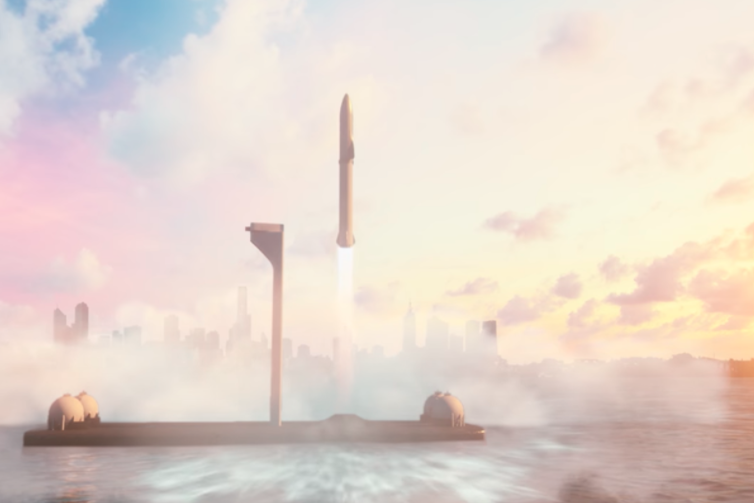SpaceX president: Travel by rocket instead of airplane 'within a decade'
Many eyebrows were raised when Elon Musk published a video claiming his SpaceX rocket company was planning to blast commercial passengers across oceans in under an hour.
But now, seven months and several successful SpaceX launches and landings later - although none with humans onboard - the company's president says commercial passenger rockets will be with us within a decade.
Speaking at the TED Conference in Vancouver this week, SpaceX president and chief operating officer Gwynne Shotwell said: "This is definitely going to happen", adding that the technology will be ready and operational "within a decade, for sure," reports the Vancouver Sun.
The computer-generated video published by Musk in September 2017 suggested that, by 2024, up to 100 passengers would board a rocket which would fly high into the atmosphere and cross the Earth at 16,000mph (compared to the 600mph or so of a conventional airliner). They would then land at a rocket pads located a few miles outside of major cities.
In an Instagram post at the time, Musk said: "Fly most places on Earth in under 30 minutes and anywhere in under 60. Cost per seat should be about the same as full fare economy in an aircraft."
Fly to most places on Earth in under 30 mins and anywhere in under 60. Cost per seat should be about the same as full fare economy in an aircraft. Forgot to mention that.
A post shared by Elon Musk (@elonmusk) on Sep 28, 2017 at 11:19pm PDT
On the topic of price, Shotwell claimed it would cost somewhere between the current price of economy and business-class tickets. Such a low price would be possible, Shotwell said, because where airliners typically make transoceanic flights once per day, the SpaceX rocket would skip between continents a dozen times every 24 hours.
Shotwell continued: "I'm personally invested in this one because I travel a lot and I do not love to travel. I would love to get to see my customers in Riyadh [the capital of Saudi Arabia], leave in the morning and be back [in the US] in time to make dinner."
SpaceX claims its Big Falcon Rocket would transport passengers 7,400 miles between New York City and Shanghai in 39 minutes, compared to the 15 hours it takes by commercial airliner today. Los Angeles to Toronto would take 24 minutes, Bangkok to Dubai would take 27 minutes and flights between London and New York would last 29 minutes, six times faster than the current commercial record, set by Concorde in 1996.
This type of suborbital travel has been discussed for many years as a way to replace Concorde, which flew at twice the speed of today's fastest airliners (and at vast expense) but was retired from service in 2003 without a replacement. Several companies are now looking to re-enter the supersonic air travel industry, with Boom, a four-year-old Colorado startup, aiming to commercialize supersonic flight again by 2023.
However, if Musk and Shotwell have their way - and that's a huge 'if' - then Boom, which hopes to fly from London to NYC in three hours for the price of a business class fare, would still be way off the pace.
